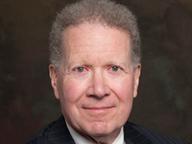Faculty News
—
Prof. Arun Sundararajan on price variations in the sharing economy
—

Excerpt from Huffington Post -- "Stern School of Business Professor Arun Sundararajan says we may see an overall shift in consumer attitudes toward surge pricing in the coming year, as the ridesharing market 'thickens,' with more supply coming online, and less volatile price swings."
Faculty News
—

Excerpt from Huffington Post -- "Stern School of Business Professor Arun Sundararajan says we may see an overall shift in consumer attitudes toward surge pricing in the coming year, as the ridesharing market 'thickens,' with more supply coming online, and less volatile price swings."

















